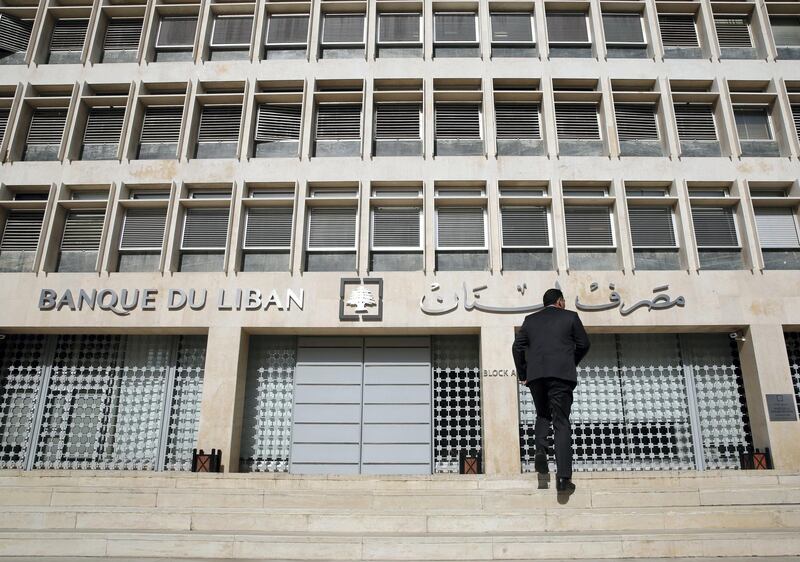Lebanon's non-oil economy continued to decline in December on the back of its political and economic woes, however, the rate of deterioration was slower than that in November, according to a new survey.
The Blom Lebanon PMI index, a composite measure of business conditions in the private sector economy, improved to 45.1 in December, rising substantially from the record low of 37 recorded in November. It is still below the 50 mark that separates economies that are improving from those that are declining.
The December figure "correlates to a below-zero real GDP growth", said Rouba Chbeir, senior economist at Blominvest Bank.
"The stakes remain high in December 2019, with Lebanon’s five-year credit default swaps averaging 1,733 basis points in November [which] heightened to 2,413 bps by December," she said.
Credit default swaps are instruments that are used to insure against the cost of a debt issuer defaulting on its obligations. The cost of insuring Lebanon's sovereign debt has soared since protests against a widening economic and political crisis began in October. Lebanon has one of the highest debt-to-GDP ratios in the world, at more than 150 per cent, and it continues to run a fiscal deficit, with analysts surveyed by Blom in a separate poll forecasting a deficit of 10 per cent for 2019, edging up to 10.1 per cent this year.
Ratings agency Moody's Investor's Service last month warned that without a support package from the World Bank, the International Monetary Fund and foreign donors, pressure on the Lebanese pound's peg to the US dollar is likely to intensify.
It said the pound was already trading at about 2,000 to the dollar, a substantial discount to the official rate of 1,507.5.
A restructuring of Lebanon's sovereign debt, which would involve some form of default action on its bonds, is "inevitable", according to Jason Tuvey, senior emerging markets economist with London-based Capital Economics.
Output by Lebanon's private sector declined in December at a faster rate than the long-term average, with respondents saying the lower level of activity was driven by political uncertainty.
New business orders also fell, extending a run of decline that began in June 2013.
Employment numbers also continued to fall for the fourth month in succession, and companies cut back on their own buying during the month.
"Corporates anticipate further reductions in output and new business in 2020 with the future output index standing at 37.4 points in December. Other indicators corroborated the PMI results as the new cars’ market slumped by an unprecedented 78 per cent in November 2019 and the number of real estate transactions also fell by an annual 34.5 per cent during the same month,” Ms Chbeir said.








